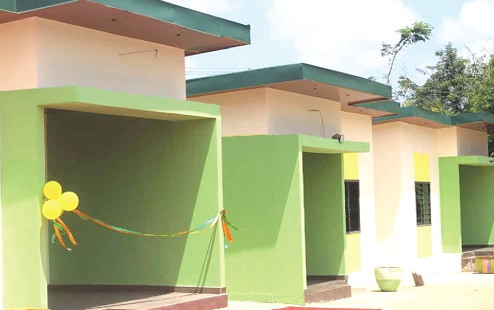Renting a home in Ghana can be exhausting — whether you are moving into your first apartment, relocating for work, or looking for a place that better suits your family.
Many tenants in Ghana fall into avoidable scams and disputes simply because they skip key checks before signing their tenancy agreement.
The largely unregulated nature of real estate agencies in Ghana has been identified as one of the main causes of the struggles and scams associated with finding residential properties.
To avoid such scams and disputes when renting, the importance of paying attention to these top five considerations cannot be overstated.
Verify ownership, documentation
Before paying any rent, a tenant should ensure that the person presenting themselves as the landlord is indeed the rightful owner of the property.
Failing to verify ownership—whether out of ignorance or neglect—is one of the most common and serious mistakes tenants make.
To confirm ownership, tenants should request proof of ownership documents and make discreet inquiries with people in the area.
Documents such as a title deed, deed of indenture, or allocation paper can serve as evidence of ownership. In transactions involving substantial sums of money, it is advisable to go a step further by cross-checking ownership details at the Lands Commission.
Tip: Always sign your tenancy agreement directly with the property owner or a legally authorised representative.
Review thoroughly
Your tenancy agreement is your legal protection, which should be read carefully before signing. It should clearly state the duration of the tenancy, rent amount, payment schedule, and renewal or termination conditions.
Knowledge of who is responsible for various types of repairs and maintenance, as well as whether rent can be increased during your stay and by what percentage, is a strong measure for preventing disputes between tenants and landlords.
Tip: Engage a lawyer or real estate professional to review the agreement to ensure your interests are fully protected.
Inspect utilities, service responsibilities
Before moving in, tenants should confirm which utilities and services are included in the rent.
They should also check whether electricity and water are on prepaid or postpaid meters, and clarify who is responsible for paying bills such as waste collection, security and internet.
Inspecting the meters to ensure there are no outstanding debts is always a wise step.
Tip: Put all these details in writing to avoid disagreements with the landlord later.
Examine physical condition
A beautiful exterior can sometimes conceal serious maintenance issues. Tenants should thoroughly inspect the property for leaky roofs, faulty wiring, plumbing problems, or damaged fixtures.
They should turn on taps and lights, flush toilets, and check for signs of dampness or pest infestation.
Conducting this inspection helps tenants understand exactly what they are paying for and ensures they are not held responsible for pre-existing damage.
Tip: Take photos or videos of the property before moving in — it serves as evidence in case of disputes.
Evaluate location, neighbourhood
The location of one’s home is just as important as the property itself.
Tenants should consider factors such as security, road access, proximity to essential services, and noise levels.
In cities such as Accra, it’s also wise to check for flood risks and assess the general safety of the area.
Tenants should visit the neighbourhood both during the day and at night to gain a full sense of the environment.
Tip: Talk to neighbours or nearby shop owners for first-hand insights about the area.
Conclusion
Renting in Ghana doesn’t have to be stressful. With proper due diligence and professional guidance, tenants can avoid costly mistakes and enjoy a smooth tenancy experience.
By verifying ownership, inspecting the property, clarifying responsibilities, and assessing the neighbourhood, tenants can make informed decisions that protect both their comfort and their finances.
Taking these precautions not only ensures peace of mind but also fosters a healthy and transparent relationship between landlords and tenants.
Real Estate Professional,
El Futuro Realty.
E-mail: rn@elfuturorealty.com

